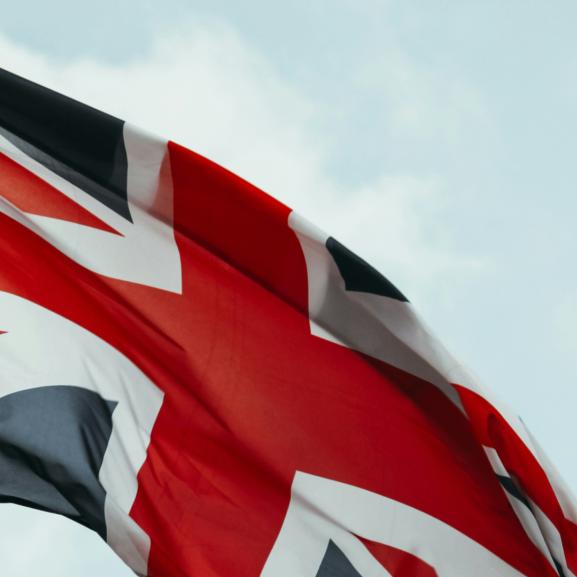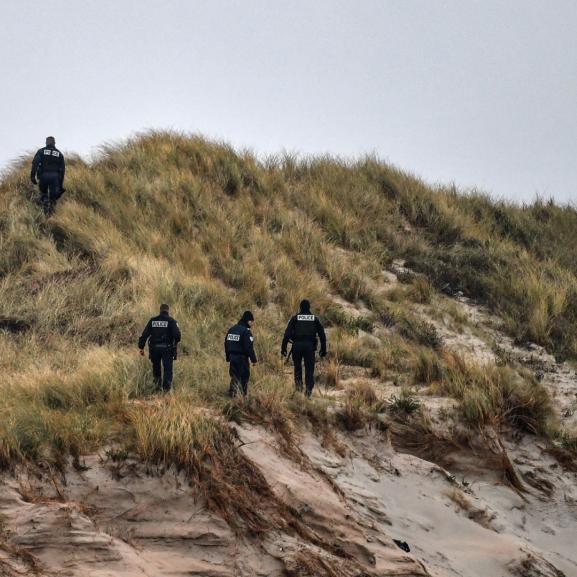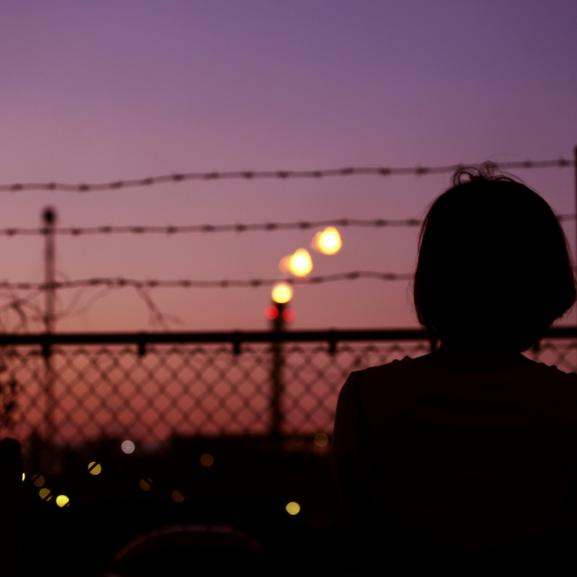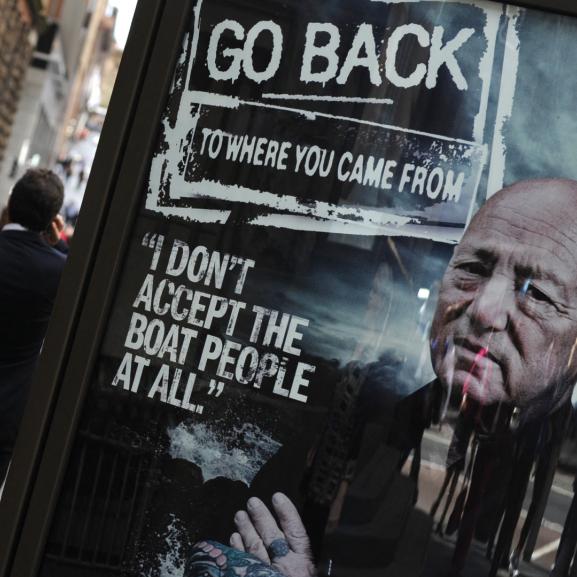Refugee rights are under attack. Here’s everything you need to know.
The rights of asylum seekers in the UK are under attack. As the UK moves towards an Australian style immigration system, here’s everything you need to know about how the attack on the rights of refugees began and what it could mean for us all.
There’s no doubt that the year 2020 will go down as one of the most turbulent in history.
But when considering the government’s attitude towards refugees and asylum seekers, 2020 has been a total downhill spiral.
It was only a few months ago that Priti Patel promised us a ‘compassionate’ Home Office, pledging to adopt all 30 recommendations from the Wendy Williams’ Windrush review in the aftermath of the Black Lives Matter protests.
Yet over the last few months, the Home Secretary has been laying the foundations to overhaul the asylum system, launching an attack on the rights of refugees and the individuals that protect them.
Victims of the Windrush scandal have already expressed concern over the later released Windrush Implementation plan, suggesting that it only offers “lip service.” All the while, Priti Patel has been preparing dangerous asylum reforms, which undermine Britain’s commitment to international law and risk denying asylum seekers of their human rights.
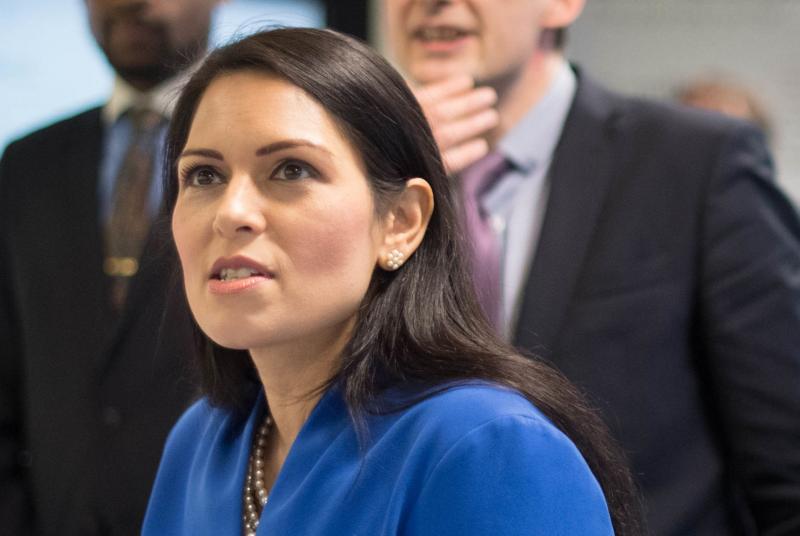
What’s Priti Patel’s stance on asylum in the UK?
In October 2020, Priti Patel, the Home Secretary, delivered a speech at the Tory Party conference where she outlined her plans to reform, what she called, our “broken asylum system.”
“And for those defending the broken system — the traffickers, the do-gooders, the lefty lawyers, the Labour Party — they are defending the indefensible.”
The Home Secretary’s dangerous rhetoric against lawyers is seen in patterns of abusive behaviour by states around the world- and it’s something the survivors of torture we work with know all too well.
At the same time, the Home Office began housing asylum seekers in decommissioned army barracks, putting vulnerable people who have fled war, torture and persecution in shared dormitories with little privacy limiting ability to social distance and no effective access to legal advice or specialist medical care.
But how did we get here?
Did you know that asylum applications in the UK have dropped significantly this year?
You wouldn’t have guessed it after seeing the frenzy whipped up by the government and the media about people crossing the Channel in small boats.
One could call it the perfect storm – a distraction while the government introduced the most draconian asylum policies we’ve seen in decades.
It’s a lot to get your head around – so we’ve created a timeline to demonstrate how the last few months have unfolded:
May:
- Nigel Farage visits the Kent coast to contest the number of people who had crossed the Channel. Just 11 people are reported to have landed there.
He called it the UK's 'illegal migrant scandal.'
- The same month, Priti Patel launches a campaign to increase the powers that would enable her to turn small boats containing asylum seekers around. The campaign launches in the form of a media blitz against those crossing the Channel on small boats.
July:
- Farage sets his sights on asylum seekers in hotels, stirring up hatred against asylum seekers both in local communities and online.
August:
- Priti Patel reveals plans to overhaul the asylum system, proposing new legislation that would prevent asylum seekers from bringing new evidence forward during their asylum claim.
- The same month, she took drastic action, appointing an ex-Royal Marine to commandeer navy warships to intercept the small, inflatable boats despite warnings that those onboard could drown.
- The Home Office took a stab at human rights defenders, tweeting a video that referenced ‘activist lawyers.’ The video was later taken down after being criticised for using dangerous rhetoric.
- Later in August, fascist group, Britain First, heeds the dog whistle. The group starts stalking asylum seekers in hotels. The members of the far right group knocked on the bedroom doors of asylum seekers to ask questions and intimidate them.
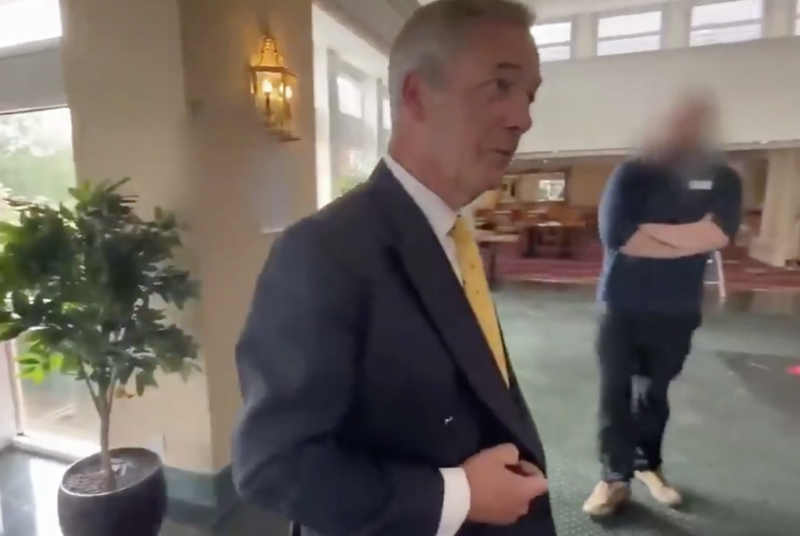
September:
- Far-right protesters take to the streets of Dover to block the port in protest of those trying to cross the Channel. Despite bringing the port to a standstill, Priti Patel refused to comment.
- Later that month, neo-Nazi teen group British Hand plans an attack on asylum seekers. The British-based group plotted a massacre on asylum seekers in Dover to rival the Christchurch mosque shooting.
The group is known to recruit children as young as 12.
Police believe the far-right constitutes the fastest-growing terrorist threat to the country, the Times reports.
Priti Patel still remains silent.
- Later in September, far-right groups attempt to fuel hate among locals in Kent where asylum seekers are being housed in army barracks, using online platforms to spread misinformation.
The far-right, who are preventing people from entering and leaving, attack the buildings, threaten asylum seekers being housed there and attempt to recruit local people to join their campaigns.
- In Penally, another set of army barracks used to house asylum seekers are targeted by the far-right resulting in protests in a small local village.
The First Minister of Wales writes to the Home Secretary to call out her actions placing asylum seekers in barracks without any of the proper provisions in place to prevent friction and concern in local areas. He pressed that Wales was a nation of sanctuary that wanted to welcome those who had arrived ‘through no choice of their own.’
Priti Patel remains silent. Consequentially, the violence does not stop there.
- On September 7th, a lawyer defending the rights of marginalised migrants is attacked with a knife by an assailant who enters the law firm where the victim worked.
A confederate flag and far-right literature is found in his bag.
Still no word from the Home Secretary condemning the actions of the far-right.
October:
- A government leak reveals plans to house people crossing the Channel in offshore prisons.
The plans, said to be part of a blue-sky thinking exercise, included sending migrants to centres on remote islands in the south Atlantic.
Whether such solutions materalise, the ideation alone is a far cry from the “compassionate Home Office” promised by the Home Secretary back in July.
So, what’s happening to those who’ve crossed the Channel now?
Little did we know, behind closed doors Priti Patel was sending those who’d crossed the Channel to disused army barracks.
We’re concerned about how safe it is to house people in such close quarters during a pandemic.
There have been two outbreaks of Covid-19 in hotels housing asylum seekers so far, and we fear that the arrangements in the military barracks do not allow for social distancing.
Housing traumatised people in a military setting is also a cause for concern.
Many of the people arriving in the UK seeking sanctuary have fled countries precisely because of conflict and military activities which have left them feeling unsafe.
This is not a suitable solution.
Without proper risk assessment, the barracks could trigger re-traumatisation with terrible consequences.
What does this have to do with the Fair Borders Bill?
In her speech to the Conservative Party conference, Home Secretary Priti Patel stated her intention to introduce a new Bill next year. Unfortunately, the barracks appear to be a taste of the asylum system that the government looks likely to introduce through the Bill. We are worried that the Bill will attempt to normalise housing asylum seekers in similar internment camp accommodation where access to legal representation, specialist healthcare and torture documentation will effectively be restricted.
Denying access to the asylum procedure violates the rights of those entitled to protection under the refugee convention.
The Home Office must collaborate with local communities and authorities to find an alternative solution.
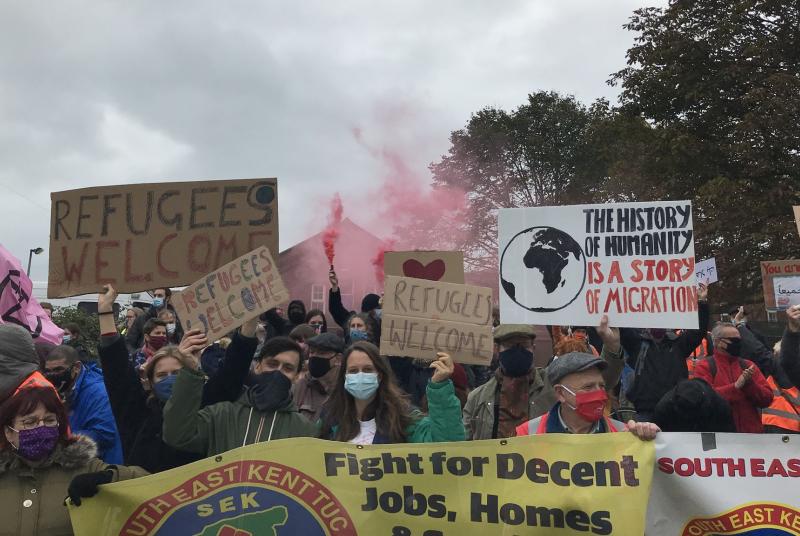
Why is this emboldening the far right?
This government is demonising asylum seekers and using them as a scapegoat to cover up their poor handling of the coronavirus crisis and the recession.
As long as they treat asylum seekers like criminals undeserving of protection, far right groups will target them.
The government has so far failed to stand against the actions of the far right.
They must do so immediately.
What does this mean for the asylum system and what does this mean for our human rights in the UK?
Don’t be fooled into thinking the rights of asylum seekers are far removed from your own.
We only need to look at Trump’s America to see that the erosion of civil liberties often starts at the border. But they usually hurt us all, regardless of what political side we are on.
To reconcile, the Home Office must remind itself of our international commitment to provide a safe haven to people fleeing torture, persecution and war.
But this must also be reflected in a just asylum system that does not discriminate on the grounds of means of entry, treats people humanely and assesses their claim fairly.



